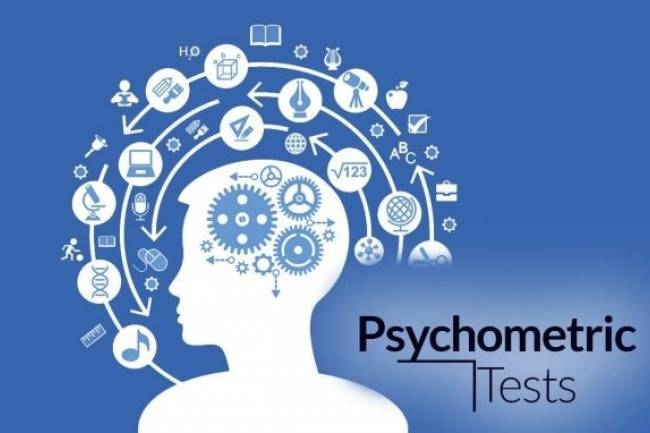How AI-Powered Chatbots and Virtual Assistants Are Transforming Support for Diabetes Patients
Managing diabetes requires constant attention, from tracking glucose levels to remembering medication schedules and understanding nutritional choices. With these daily challenges in mind, healthcare innovators are turning to artificial intelligence to ease the burden. One of the most significant shifts is the adoption of AI-powered chatbots, and virtual assistants that help diabetes patients navigate their conditions more efficiently. Joe Kiani, founder of Masimo, has seen various ways AI is enhancing patient support systems.
These digital tools aren’t replacing doctors, but they help people stay more informed, consistent and confident in managing their health. They offer immediate feedback, personalized insights and continuous support that fits into daily life. For patients juggling multiple responsibilities, this kind of real- time assistance can make diabetes management feel less overwhelming.
The Rise of Conversational AI In Diabetes Care
AI-powered chatbots and virtual assistants use Natural Language Processing (NLP), machine learning and real-time data to interact with patients in meaningful ways. Instead of simply offering automated responses, they can understand context, recognize behavioral patterns and respond to users in personalized, empathetic ways.
For someone with diabetes, this means having a 24/7 digital support system that can answer questions about symptoms, offer reminders about insulin injections or help analyze glucose readings. Tools like these are increasingly being integrated into smartphone apps and wearable devices, making them convenient and easy to access.
How Chatbots Help with Daily Diabetes Management
Consistency is one of the most important aspects of diabetes care. Missed doses, skipped meals or unnoticed patterns in blood sugar can have long-term consequences. This is where AI-enabled tools can make a significant difference. Many patients are already engaging with chatbots that:
Provide medication reminders and dosage guidance
Track food intake, exercise and sleep to detect trends
Alert patients to sudden changes in glucose levels
Offer emotional support and encourage self-care routines
In more advanced systems, these bots can even communicate with a patient’s care team, sending alerts or logs that keep everyone on the same page.
Enhancing Education and Empowerment
AI virtual assistants don’t just guide behavior; they educate. One key benefit is the ability to deliver tailored, real-time education based on the patient’s experience. For example, if someone enters a blood glucose reading that’s out of range, the assistant can immediately explain what might have caused the issue and suggest safe next steps.
This constant stream of information, delivered conversationally, helps patients feel more in control. It also reduces the reliance on routine doctor visits for basic questions, freeing up clinicians to focus on more complex care.
As both patients and healthcare providers seek smarter, user-friendly tools, there’s a growing push for solutions that blend accuracy with simplicity. Joe Kiani said, “AI and virtual assistants are changing the way we manage diabetes, making care more accessible and personalized.” Tools that deliver clear, timely feedback are becoming essential to daily diabetes management. When support is available in the moment it’s needed, patients are better equipped to stay consistent, adjust routines and avoid setbacks
that might otherwise lead to complications.
The Role of AI In Detecting Patterns and Predicting Risks
One of the most useful aspects of AI in diabetes care is its ability to detect patterns across time. While traditional health records show what already happened, AI can connect the dots to anticipate what might happen next. By analyzing data from glucose monitors, meal logs, physical activity and sleep trends, these tools can flag early signs of risk and suggest adjustments before issues escalate.
If a patient regularly sees higher blood sugar in the afternoon, a virtual assistant might pick up on the trend and recommend adjusting meal timing or adding a short walk. Small, timely suggestions like these can help patients fine-tune their routines and stay more consistent day to day.
Emotional And Mental Health Support
Diabetes management isn’t only physical; it’s emotional. Many people face burnout, frustration or anxiety about their condition. AI-powered assistants are beginning to incorporate mental health features that offer encouragement, recommend mindfulness practices or simply provide a space to talk.
While these virtual tools are not a replacement for professional therapy, they do offer real-time support, which can be critical during moments of stress or isolation. In this way, AI is helping to create a more holistic approach to chronic care.
Challenges And Ethical Considerations
Despite AI's promising role in diabetes care, these innovations are not without challenges. Patient privacy is a top concern. For chatbots and virtual assistants to function effectively, they must access sensitive health information, raising questions about how data is stored, used and protected.
Developers must ensure that AI tools avoid biased decision-making. Not all patients present the same symptoms or react the same way to medications. An AI trained on a narrow data set may misinterpret signals or provide inaccurate advice. To prevent this, tech companies are now prioritizing diverse, inclusive datasets and continuous monitoring of AI decision-making models.
Real-World Applications and Use Cases
Hospitals and clinics are starting to integrate AI chatbots into their patient portals, while diabetes management apps increasingly offer voice-enabled assistants. Some insurance providers have even partnered with AI firms to offer virtual coaches as part of wellness programs. These tools are particularly helpful for underserved populations who may not have regular access to specialists or diabetes educators.
In rural areas or regions with fewer healthcare resources, these assistants bridge the gap, offering timely guidance and fostering better outcomes. They can also reduce the cost of care by helping patients avoid preventable complications.
AI As a Partner in Everyday Health
AI-powered chatbots and virtual assistants aren’t magic bullets, but they are changing how patients engage with their health in real-time, daily interactions. For people living with diabetes, this means having a constant companion, one that’s knowledgeable, supportive and ready to respond when needed. These tools foster consistency, reduce uncertainty and encourage patients to take a more active role in their care.
By combining innovation with advancements in AI technology, the future of diabetes care looks not just more connected but more human. The ability to receive instant, tailored guidance helps reduce the overwhelming nature of chronic disease management. These tools are helping redefine patient empowerment, offering new ways to stay ahead of a disease that affects millions.












